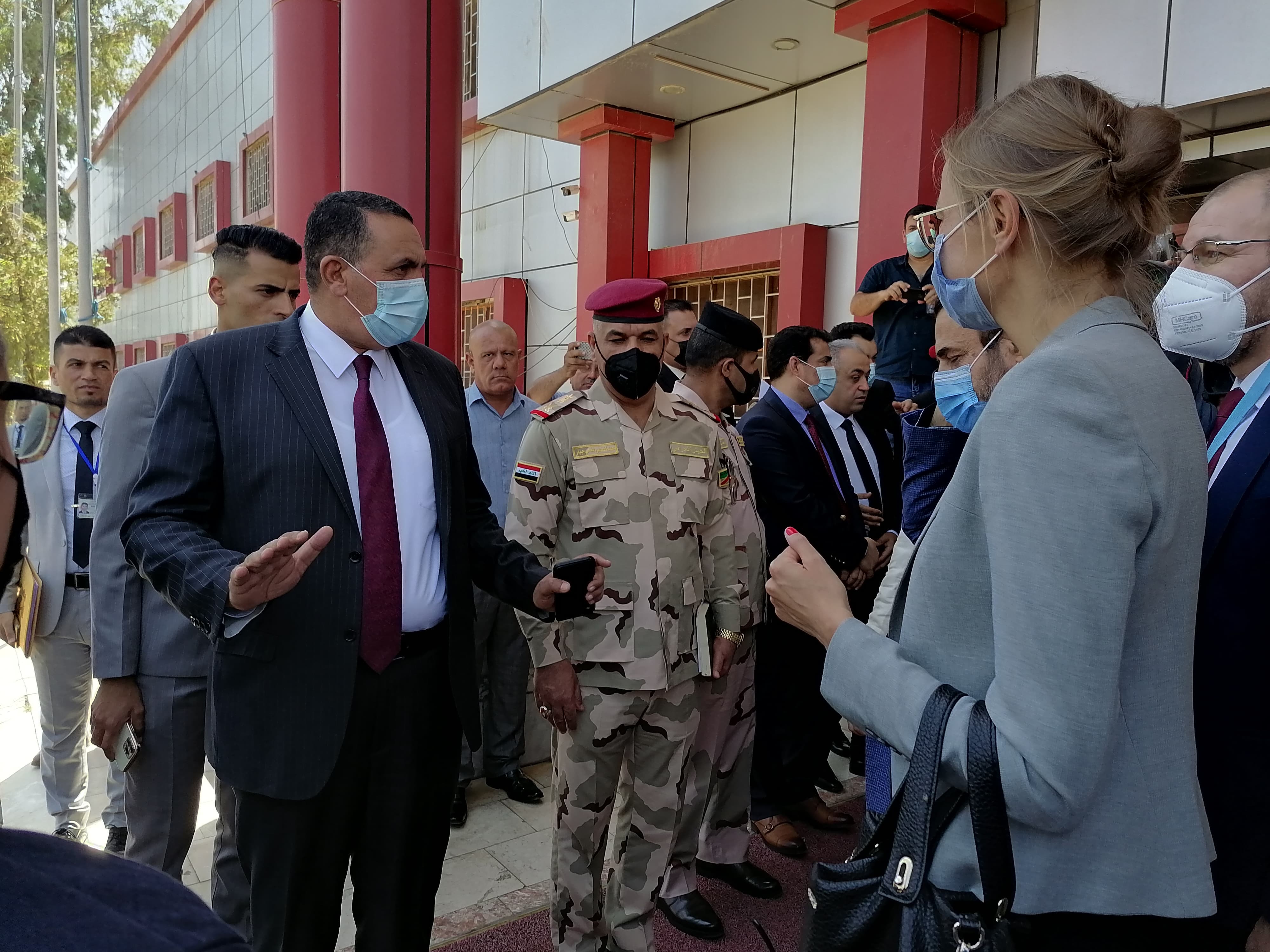Acting governor of Kirkuk called on European countries to pump in more aids into the areas controlled by the Islamic State in Iraq and Syria ISIS up to 2017 and urge the internally displaced people IDPs to return to their home towns.
Rakan Sa'id Al-Jiburi met representatives of France, Germany, Norway, Denmark and Canada visiting Kirkuk on May 30 in follow up for the conditions of the IDPs and renovation of the areas once under IS militants in Kirkuk province.
"We will not forget the aids by those countries to rebuild the liberated territories. About 250,000 people were displaced in Kirkuk and 18,000 houses have been demolished," Al-Jiburi said.
Al-Jiburi said Kirkuk has received only 18 million USD from United Nations Developing Program UNDP Iraq which was only 2% of the total allocation.
"We asked for more aids because part of the IDPs has not returned home due to lack of houses in their home towns," he added.
"We asked for more aids because part of the IDPs has not returned home due to lack of houses in their home towns,"
Al-Jiburi did not declare further details about families still displaced in Kirkuk.
In mid 2014, IS controlled the province of Nineveh and one third of Kirkuk province, the towns of Hawija, Zab, Rashad, Riyadh and Al-Abbasi, up to October 2017 when it was liberated by Iraqi forces.
The northern oil-rich city of Kirkuk, Iraq's second largest oil reserves, is ethnically a mixed province for 1.2 million Kurds, Arabs, and Turkmen. It has long been at the center of disputes between Baghdad and the autonomous Kurdistan Regional Government KRG.
Kirkuk has produced 2.86 million barrels in April generating 177 million Dollars USD to Iraq's national revenues compared to 3 million barrels last March $195 millions per figures of oil ministry
"We could bring back life to those territories by the aids and carry out tens of strategic projects and will go on," Al-Jiburi said.
The multinational team has received a full report by Kirkuk administration about rebuilding war-torn territories of Kirkuk.
Iraqi minister of migration and the displaced said still 37,000 IDPs live under tents in 28 camps in the Kurdistan region.





